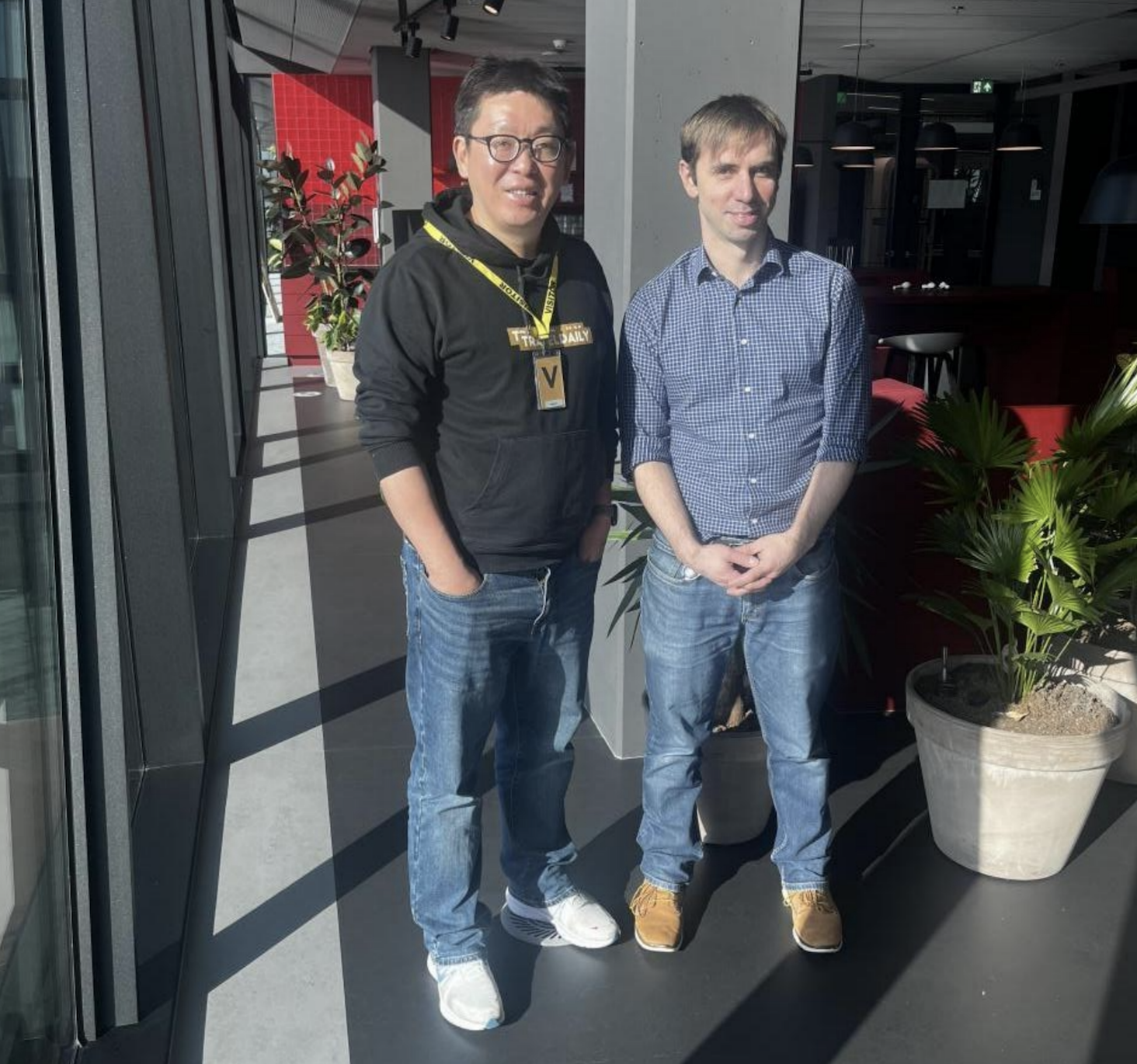
In March, against the picturesque backdrop of Amsterdam’s canals, TravelDaily CEO Charlie Li sat down for an in-depth conversation with Booking.com's Chief Business Officer, James Waters, at the company’s headquarters.
Outside, the sun shone brightly. Yet beyond this tranquil scene, the global travel industry was weathering a "perfect storm"—the rise of artificial intelligence, shifting consumer behaviors, and an evolving market landscape. Industry leader Booking.com, along with its competitors, is navigating these disruptions in search of new opportunities.
As a seasoned executive, James Waters shared insights into Booking.com’s global strategy, AI’s role in reshaping the travel industry, innovations in travel content and user experience, and the challenges and opportunities in the Chinese market.

Outside, the sun shone brightly. Yet beyond this tranquil scene, the global travel industry was weathering a "perfect storm"—the rise of artificial intelligence, shifting consumer behaviors, and an evolving market landscape. Industry leader Booking.com, along with its competitors, is navigating these disruptions in search of new opportunities.
As a seasoned executive, James Waters shared insights into Booking.com’s global strategy, AI’s role in reshaping the travel industry, innovations in travel content and user experience, and the challenges and opportunities in the Chinese market.

James Waters’ career journey has been quite unique. After earning a master’s degree in anthropology from the University of Cambridge, he joined Booking.com part-time by chance—and never left.
Over the past 16 years, James has rotated through different departments, including marketing, product, customer service, technology, HR, etc. He also spent time in Shanghai, leading the company’s expansion in the region. This cross-functional experience has given him a distinctive, holistic perspective on the online travel marketplace ecosystem: The essence of the travel industry is fulfilling humanity’s desire to explore the world—technology is merely a smarter tool to solve the puzzle.
AI has yet to revolutionize travel
Despite the current hype around generative AI, James remains cautiously optimistic:
"GenAI is better at doing things that we already did before. They're not necessarily a totally different experience. But I think what we'll see for a while is GenAI doing things better than we did before. And it will be longer before we find out what an agent world really looks like and something that looks and feels totally different."

Booking.com's headquarters campus in the Amsterdam, Netherlands
Booking.com has made significant AI-driven advancements in areas like:
●Customer Service Efficiency: AI generates standardized responses for hotels, allowing them to edit and reply to guests, improving response efficiency.
●Smart Search: Supports natural language queries like "ocean-view vacation homes with a pool," increasing property matching accuracy.
However, James acknowledges that AI has yet to address a core pain point: seamless trip planning.
If you plan an itinerary for a trip around Europe, visiting four different cities on four different days, you’ll have flights, accommodations, and possibly a rental car to arrange. Booking all of that isn’t as simple as taking a single price from one source and integrating it into a ChatGPT experience. The process from discovery to booking involves many complexities that no one has fully solved yet, and that’s what makes it exciting to see.
This aligns with Booking Holdings CEO Glenn Fogel’s view that truly disruptive AI applications in travel may still be years away.
"Connected Trip" is growing but still has room for expansion
Booking Holdings' "Connected Trip" initiative—expanding from accommodation into new verticals such as flights and car rentals—has become a standout performer in the company’s financial reports:
●In Q4 2024, connected trip transactions (2+ travel components in a trip) grew 45% year-on-year.
James highlights two key factors driving this growth:
●Loyalty Program Upgrades: Expanding "Genius" membership perks (adding flight and attraction benefits) has boosted engagement.
●Personalization & Contextualization: The power of personalization and contextualization increases hugely. That's where future investments and innovation will be.
Despite its rapid growth, Connected Trip transactions account for a high single digit percentage of Booking.com’s total transactions, according to the recent earnings report from Booking Holdings.
James highlights three critical focus areas for scaling Connected Trip:
●User Friction in Transitioning from AI-Generated Itineraries to Booking
●Expanding the Genius loyalty program to integrate flights, cars, and attractions, creating a unified rewards ecosystem
●Operational complexity as a barrier to seamless multi-service bookings (e.g., a trip spanning flights, hotels, and car rentals across multiple cities).
The Chinese market: A strategic priority
Booking.com's position in China has long been a topic of industry discussion. Despite a slower recovery in China’s outbound tourism, James sees China as a critical market.
Booking.com is actively expanding partnerships with local Chinese companies such as Alipay and China Eastern Airlines while exploring short-video platforms like TikTok to engage younger consumers.
However, James acknowledges that Booking.com's China brand marketing budget is not as high as in the U.S. yet, relying more on performance marketing and partner-driven traffic. In response to Trip.com’s aggressive content-driven approach (akin to Xiaohongshu’s UGC model), Booking.com is doubling down on its technology edge. Its Shanghai R&D Center plays a pivotal role in optimizing the global booking experience, serving as the company’s "invisible infrastructure" for localizing services.
Personalization and content are the future
James predicts two major entry points for travel discovery over the next five years: short-video inspirational content and AI conversational interactions (such as ChatGPT-style trip planning).
He believes immersive short videos can ignite travel aspirations, while generative AI can bridge the gap between inspiration, planning, and booking.
The key to competitive differentiation, he argues, is hyper-personalization. AI should adapt dynamically to users’ evolving needs—whether they’re business travelers, families, or solo adventurers—instead of relying on static user profiles.
Conclusion: The dual logic of Booking.com’s strategy
From AI-driven efficiency optimization to the Connected Trip ecosystem, Booking.com's strategy is anchored in two fundamental principles: "enhancing user experience through technology" and "strengthening supply chain collaboration."
As AI and ecosystem integration reshape the travel landscape, Booking.com aims to prove that true innovation begins with a deep understanding of human behavior and ends with delivering technology-driven solutions that enhance real-world experiences.




